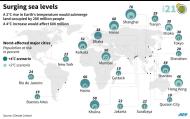FROM npr.org - Health
Now That He's A Dad, Tanzanian Doctor Is An Advocate Of Prudent Panic

Becoming a father made Dr. Namala Mkopi appreciate why
parents worry so much. He's been a leading advocate for childhood
vaccines in his native Tanzania.
Ben de la Cruz/NPR
And nothing would stand in his way, not even biology. "It wasn't my thing," he admits. "I never really liked biology."
Today, at age 38, he is a pediatrician and an advocate for child health in his native Tanzania. The vice president of the Pediatric Association of Tanzania, he has led national campaigns to introduce childhood vaccines and has traveled to the United States to gain support for child and maternal health programs. One success story has been the 2013 introduction of the vaccine against rotavirus, the most common cause of diarrhea in infants and young children.
"Every child is now getting the vaccine," Mkopi reports. He used to see 45 patients at a time in his hospital's ward for children with diarrhea. Today, he says, "we are seeing very few cases and most are older children who didn't get the vaccine."
On a visit this past fall, Mkopi stopped by NPR headquarters to talk about his philosophy of child-rearing (which has changed now that he is a parent to Nolan, age 4) and why people need to pay more attention to a disease no one likes to talk about: diarrhea.
This interview has been edited for length and clarity.
How do you like being a dad?
It's nice to have kids around. It gives you peace and understanding, and you treasure life so much.
Has being a parent changed your views about raising kids?
I appreciate what parents are going through, why they're so worried, and [their] need of making sure their kids survive. Because I will do anything to make sure my child survives.
At least your son has a doctor as a dad.
When my child has the flu, I freak out. I actually don't feel like I'm a doctor anymore. I feel like, "Oh my goodness, I have to take my kid to a doctor." When parents panic, I understand why they panic. I put myself in their shoes and I understand.
Is panic a good parenting reaction or a bad one?
A parent who panics and goes to the hospital early is a safer kind [of parent] than those who are, "Everything will be OK, it's just a cold, it's just passing." We have kids who are so very sick come into the hospital, because a parent was feeling, "Everything is OK, nothing bad will happen." But eventually bad things happen. It's better for parents to panic and give kids the attention they need — even if you go to the hospital and they tell you it's nothing, just a cold. It's better than not knowing what's going on with your child.
Here in the West a lot of parents are overprotective — they won't let their kids play on their own outside, for example. Are there overprotective parents in Tanzania?
Overprotective parents? I guess that's a disease of development. Because when I was a kid I was free to play with anybody, anywhere. I would just disappear the whole day, nobody would make any noises. I was just supposed to appear for meals. That [kind of life] still exists with low-income families but rich people are very overprotective with their kids. They do not play where we used to play, in the dust.
What's your preference: overprotected kids or free-range kids?
I wish I could just let my son play with other kids. But at the same time I know the danger out there. People are now reckless, riding motorbikes like they are crazy, driving their cars with high speed. People are just so rough on the roads. It makes me feel like I have to comply with the disease of development — because just like that, something bad can happen. We are seeing a lot of kids rushed to the hospital because they've been knocked by motorbikes, knocked by cars.
One disease that can take a toll is a disease that doesn't get a lot of attention in the media: diarrhea. What's the message you'd like people to get about diarrhea?
The one key thing is that diarrheal disease kills if not attended. One should seek medical attention immediately.
Do you have a story that illustrates the seriousness of diarrhea?
One day my wife woke me up around 3 a.m. and told me somebody's calling. I couldn't hear the phone ringing — work that day was so much I was so wasted and tired. That person was crying. What I could hear was, "My child is very sick, help me." I told that lady, "Go to the hospital, we will meet up there."
I live 8 kilometers from my hospital, so I drove like a zombie. She [turned out to be] my junior colleague, she's a doctor as well. Her child was about 9 or 10 months and had a bout of diarrhea. The child was unconscious and in shock, severely dehydrated. We couldn't find blood vessels to give fluid so I had to find access through the bone and push [in] some fluids. I asked, "When did the child start having diarrhea?" It was less than 24 hours.
The child survived. I left the hospital at 8, and I just went home and changed and came back to work.
You must have still felt like a zombie.
When the child survives you feel happy the whole day.











